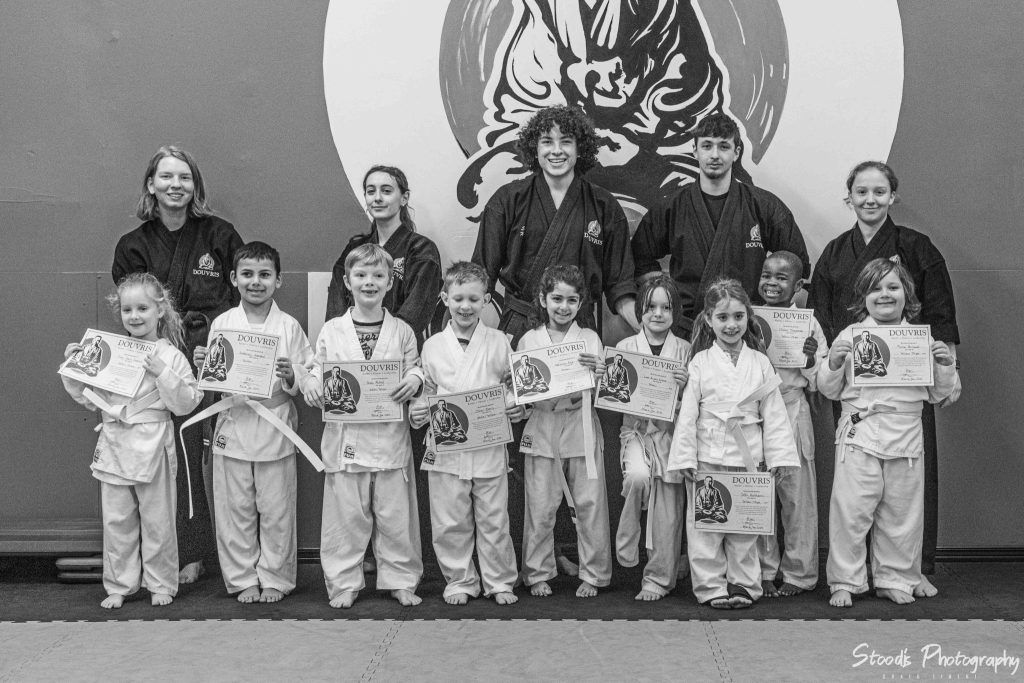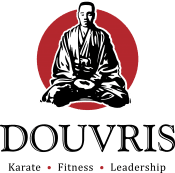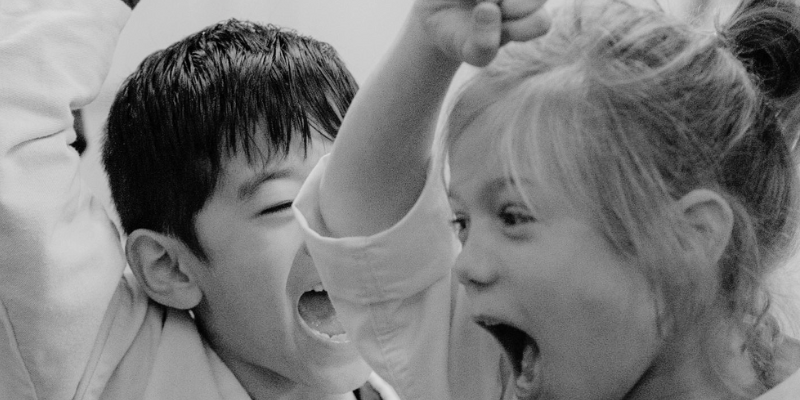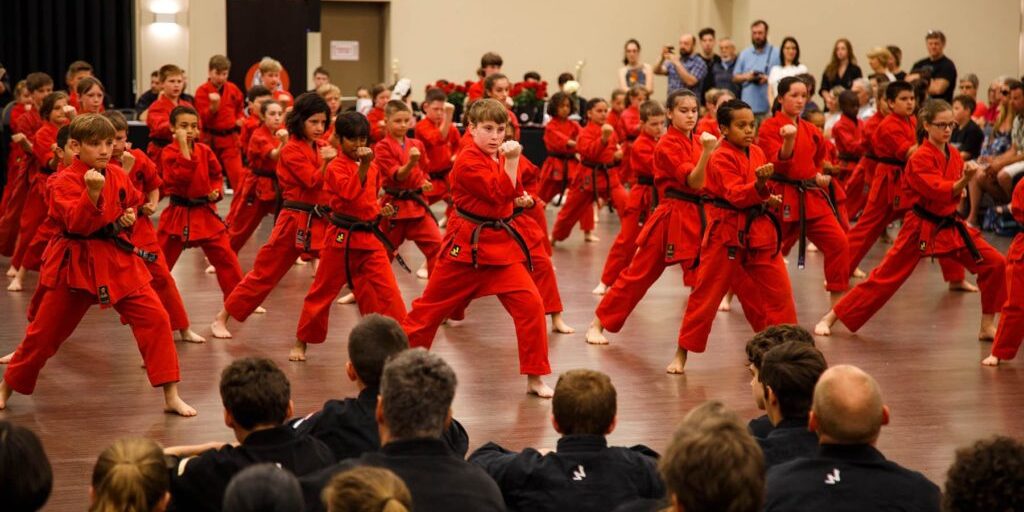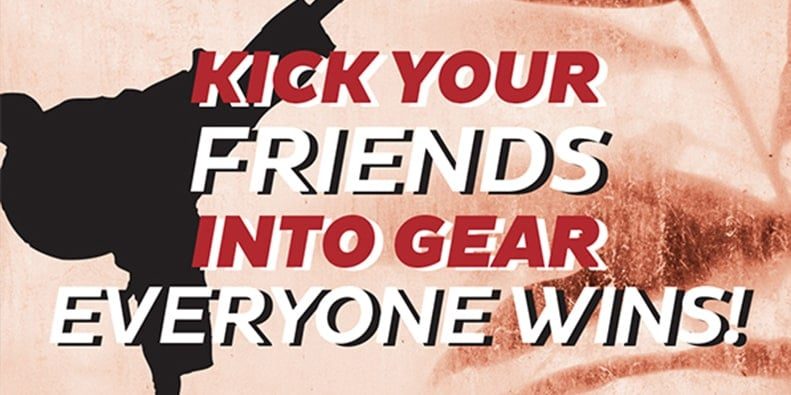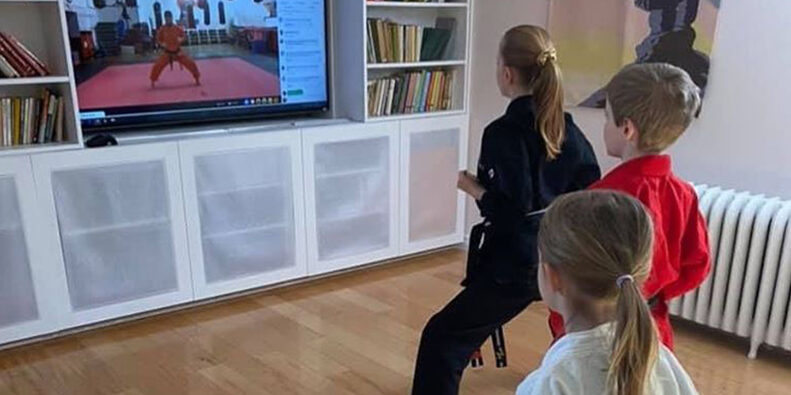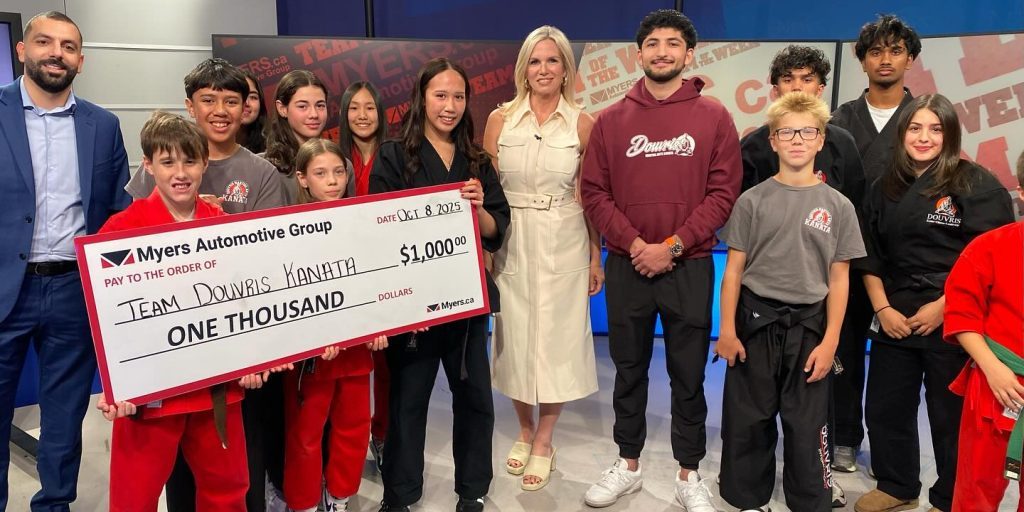Winning, Losing & the Value of Honest Self-Awareness

We hear a lot of discussion today among our Karate parents about how schools and sports teams today are creating an “everybody wins” culture. Kids don’t fail grades anymore because everybody wins. (Really? Does my high-performing kid really ‘win’ when she’s in a classroom full of underperformers? How can we even tell if she’s actually a high performer when the bar is set low?) In kids’ sports today, everyone gets a trophy and nobody loses. So everybody wins…right? Is that really being honest with our kids?
Successful business people certainly disagree. Michael Brunner, CEO, at Brunner writes: “When these kids grow up many are going to join companies like mine that are all about winning. We’ll need them to help us beat our competitors to market with new products and services. They’ll need to help us innovate and boost our share prices. Already, I’m seeing young adults come through our doors who grew up believing that everyone wins. Well, it’s not true.”
“I see too many kids who enter the workforce and expect to win just by showing up.” – Michael Brunner, CEO, Brunner
When Everybody Wins, Nobody Wins
As life-long karate practitioners, instructors, competitors, champions, and business owners, however, we at DOUVRIS know how damaging the “everybody wins” mindset can be in real life. In real life, particularly in the business world, where we all want our kids to succeed, there are winners and clear losers. You don’t get the job that you want. Your company loses a customer to a competitor. You spend a month creating a big proposal, but don’t get the work.
One of the things we LOVE about karate as an art, a lifestyle, and a sport is that it promotes competition – healthy competition. The kind that makes an individual more self-aware. The kind that makes a person care a lot about what they’re doing. The kind that drives us to be great at something, which in turn teaches us that we can be great in other things as well.
Competition Encourages Honesty, Which Leads to Excellence
It’s just a fact. Anyone who instructs or coaches anything, whether a sport, an art, or a hobby, can tell you that the individuals who progress furthest in their vocations are competitive. Competition drives people to be better, not necessarily just because they like to win. Our own Sensei and World Champion, Robbie Lavoie, says, “I hate losing more than I like winning.” The agony of defeat can be a powerful motivator.
“I hate losing more than I like winning.” – Sensei Robbie Lavoie, Karate World Champion
Preparing for competition (whether a belt grading, an in-house tournament, or a national competition) forces a person to look at themselves differently by placing them within a community context. Merely thinking competitively forces a person to be honest with themselves and improve through awareness of where they are today, which is necessary to setting goals for the next steps in one’s development.
Feeding the Differential Engine
Neuroscience is revealing a wealth of information about how the brain works. One thing we now know about the human brain is that it’s a differential engine, that is, it functions by making constant comparisons between things to acquire new information and understand the world.
Practically, we are wired to understand who we are by making comparisons. In competition, that may be a comparison between oneself yesterday and today; or, it may be a comparison between oneself and others.
How Karate Builds Excellence Through Honest Competition

The practice of karate fosters BOTH of these performance dimensions:
Comparison to self: In karate, the individual progresses at his or her own pace. Everyone aims for the same goals (belts), but entirely on one’s own schedule and according to one’s capability. In that way, karate is an exceptionally inclusive sport, and it’s the reason DOUVRIS members range from 4 years old to 84. At DOUVRIS, no one is left behind because everyone is treated as an individual, right down to being able to start their program at any time rather than with a cohort. There is no pressure to advance with a particular group of people (a sure recipe for some being left behind and others becoming bored).
Comparison to others: While karate is an individual sport, it is typically practiced in a group setting. At DOUVRIS in particular, there are always higher-level belts helping lower-level belts, so everyone can see the possibilities of where they can progress with their own skills. The ability to see what’s possible through the achievements of others is absolutely critical to learning and progress. Karate also offers a variety of opportunities to compete in tournaments as individuals, pairs, and as part of teams, and all of these are opportunities that DOUVRIS makes available.
“If everyone on the team gets a trophy (ages 5 and under are excluded because at that point, they should just be developing a love for the game) then the best player and worst player are equal. The best player knows that he’ll get a trophy regardless, so he may stop trying so hard, and the worst player won’t try at all because what would be the point of putting in more effort to get the same reward?” – Pro Sports Chick
One of the reasons karate has been proven so effective in developing excellence, self-discipline and lifelong practitioners is that it offers a full range of competitive dimensions. From introverts to extroverts, natural sportspeople to natural klutzes, and everything in between, karate encourages constant self-improvement.
Competition Teaches You How to Fail
A fear of failure is at the heart of the “everybody wins” culture. But failure is a simple fact of life and a healthy one, too. If we’re afraid to lose, we’re afraid to try new things, set new goals, and push ourselves beyond our perceived limits. If we never lose, we never learn what to do to win. Likewise, if a person believes that they always win, they will never develop the skills needed to push themselves to be the best they can be.
Anyone who competes in anything will tell you that every failure makes you stronger. After the immediate pain of under-performing subsides, we’ve advanced in our development because failure is the most excellent teacher of that differential engine, the human brain.
Let’s say you don’t achieve a new karate belt as quickly as you hoped or lose a sparring match. These disappointments reshape our perception of ourselves. They reveal exactly what is missing in our training or performance. Our goals become clearer. We begin to understand the steps we need to take to improve. Most importantly, we learn to reflect and to be honest with ourselves.
“…the ‘everybody gets a trophy’ mentality basically says that you’re going to get rewarded just for showing up. That won’t build true self-esteem; instead, it builds this empty sense of ‘I’m just fantastic, not because I did anything but just because I’m here.'” Jean M. Twenge, author of The Narcissism Epidemic: Living in the Age of Entitlement
So, win, lose, or draw, the process of thinking competitively and training to prepare for competition absolutely – always and 100% of the time – instigates significant performance improvements.
Summer Confidence Kick Start Membership:
Let’s Foster Resilience and Honesty Within Ourselves and Our Children
Receive 2 Karate Classes for $19.95 + A New Uniform
Your Kick Start Membership Includes:
✅Two Karate Classes! Get hands-on experience and learn fundamental martial arts skills.
✅A New Uniform! Your child will feel ready for success in their brand-new karate uniform.
Sign up this month and give your child the mindset to thrive because confident kids become unstoppable adults.
Please note this article is based on our thoughts and has not been formally approved by a healthcare or fitness professional.
